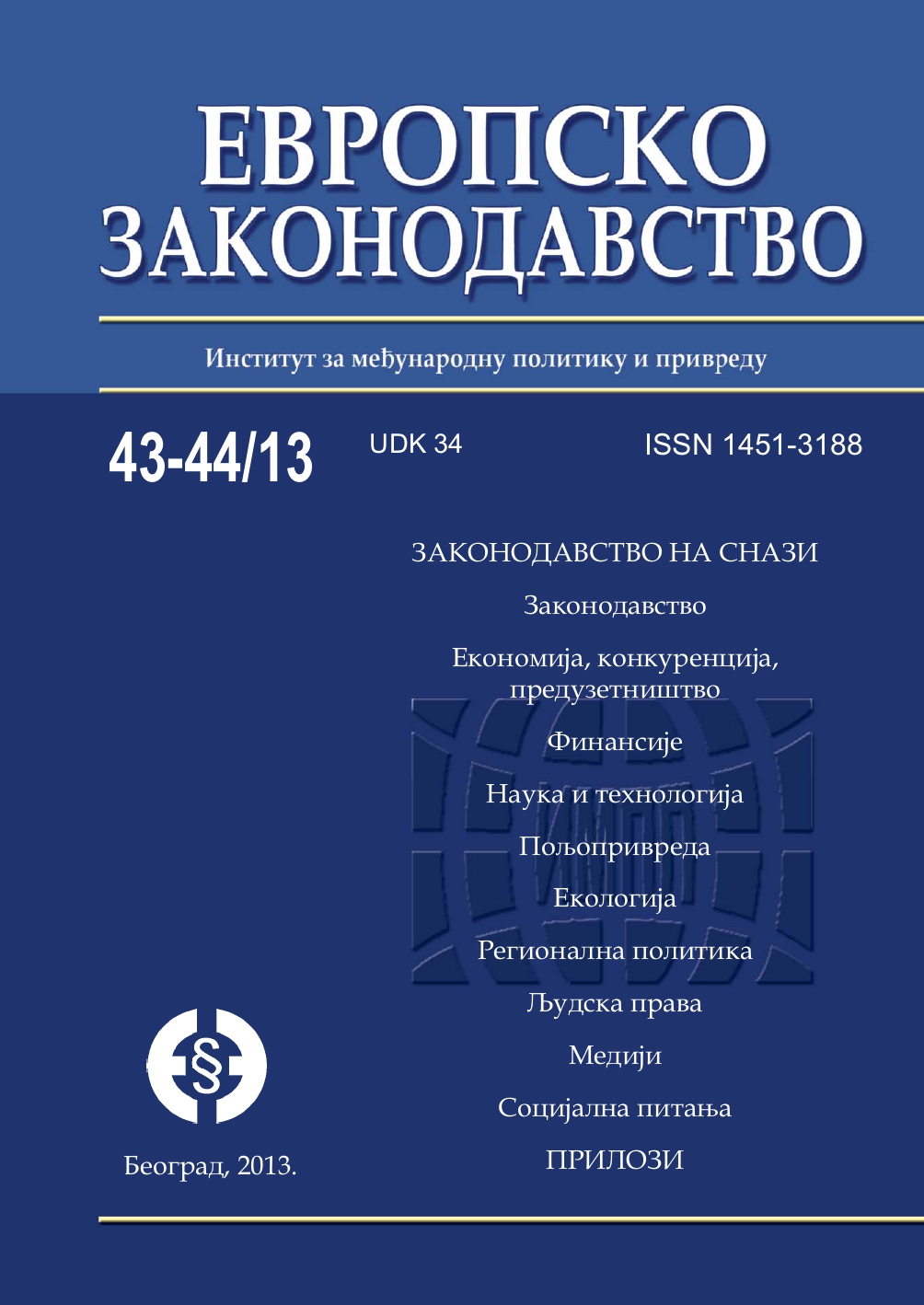О заштити основних права у Србији у светлу лоше оцене Европске комисије - разлози ниског степена стварне заштите основних права у Републици Србији и неопходне мере за њено побољшање
On the protection of fundamental rights in Serbia in the light of the poor assessment of the European Commission - the reasons for the low level of real protection of fundamental rights in the Republic of Serbia and the necessary measures to improve
Author(s): Luka BreneselovićSubject(s): Human Rights and Humanitarian Law, EU-Legislation
Published by: Институт за међународну политику и привреду
Keywords: Basic Rights;Human Rights;EU;Stabilisation and Association Process (SAP);Legal Transfer;Legal Culture;Law in Action;Law Implementation;Constitutional Theory;Serbia
Summary/Abstract: The issue of fundamental rights in Serbia is particularly sensitive. Speaking with the words of European Commission: “The legal and policy framework for human rights and the protection of minorities in Serbia is, overall, in line with European standards”. However the Commission has also stated that, regarding those rights, the “implementation of the legislation needs to be stepped up”. This problem of an insufficient “implementation” is a fundamental problem of Serbian legal system which overhauls daily politics and political consensus of the ruling parties. It is rather a structural problem which is deeply connected with the transfer culture of the Serbian legal system and society in general. The provisions which provide fundamental rights are neither introduced nor implemented within the broader social framework. In the contrary, the fundamental rights provisions have been transplanted from the foreign legal system without any sense for local, culturally determined tasks and problems, and without a consciousness for the content of introduced guaranties in their original social framework. Therefore there are many fundamental rights (freedom of science, autonomy of universities) which live rather only in books, than in action. Some well-known fundamental principles, as the one of equality, are also not taken seriously. Irresponsibly enough, the equality is introduced only in such aspects, which have been a part of classical discussions and works in the Western societies. On the other side, specific problems of equality in the Serbian society, being not introduced in the Western literature, are overseen or simply ignored. The fundamental guaranties are rather accepted as some uncrackable foreign codes than as vivid concepts which may improve the social welfare and the quality of the personal life.
Journal: Европско законодавство
- Issue Year: 2013
- Issue No: 43-44
- Page Range: 335-360
- Page Count: 26
- Language: Serbian

